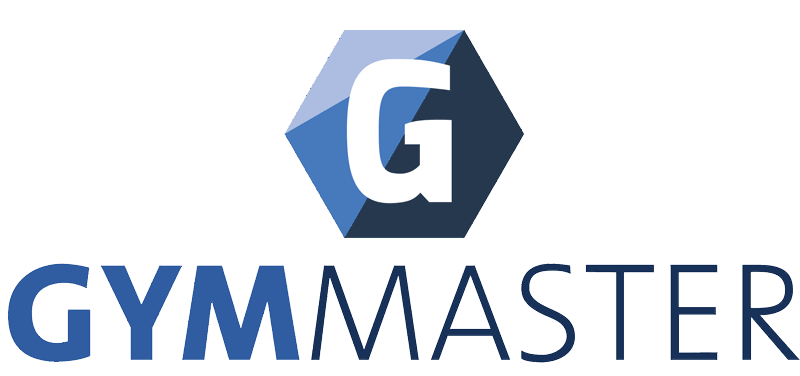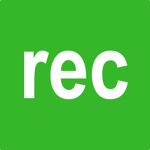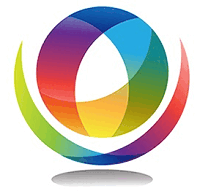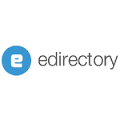Description

GymMaster

RecDesk
Comprehensive Overview: GymMaster vs RecDesk
GymMaster and RecDesk are both popular software solutions designed to manage and streamline operations for fitness centers and recreational facilities. Here's a comprehensive overview of each, including their primary functions, target markets, comparative market share, user base, and key differentiating factors.
GymMaster
a) Primary Functions and Target Markets:
-
Primary Functions:
- Member management, including sign-ups, membership renewals, and cancellations.
- Access control integration to manage facility entry and exit.
- Class scheduling and online booking for group classes and personal training sessions.
- Online payment processing and financial management, including billing and invoicing.
- Mobile app for members to manage their memberships and bookings.
- Reporting and analytics to track business performance and member engagement.
-
Target Markets:
- GymMaster primarily targets small to medium-sized fitness businesses, including gyms, health clubs, and boutique fitness studios. It's also used by larger fitness chains and franchises.
b) Market Share and User Base:
- Market Share and User Base:
- GymMaster is a well-established player in the fitness management software space, particularly favored by small to medium-sized facilities. Its market share is growing, but it faces competition from larger players such as Mindbody and Zen Planner. The user base is diverse, including solo trainers to multi-location gym franchises.
c) Key Differentiating Factors:
- Differentiating Factors:
- Comprehensive access control features, allowing gyms to manage physical access to their facilities seamlessly.
- Ease of use with a user-friendly interface that is accessible to gym owners with varying levels of technical expertise.
- Flexible pricing plans catering to different business sizes, which makes it appealing to gyms of various scales.
RecDesk
a) Primary Functions and Target Markets:
-
Primary Functions:
- Facility scheduling and management, allowing users to book and manage recreational facilities.
- Program registration, including online enrollment for classes, programs, and events.
- Membership management tailored for parks and recreation centers.
- Payment processing for facility rentals, memberships, and registrations.
- Communication tools such as email and text messaging for engaging with members and participants.
- Reporting and analytics to provide insights on program and facility usage.
-
Target Markets:
- RecDesk primarily targets parks and recreation departments, community centers, and municipalities. It is designed to meet the needs of public sector recreational facilities and program organizers.
b) Market Share and User Base:
- Market Share and User Base:
- RecDesk is a significant player in the parks and recreation management software market. It doesn't compete directly with fitness-centered software but has a strong presence among municipal and community recreation providers. The user base includes public and community sectors with a focus on maximizing program efficiency and facility usage.
c) Key Differentiating Factors:
- Differentiating Factors:
- Specialized in handling the complex scheduling and programming needs of community and municipal recreation departments.
- Customizable to meet the specific requirements of public sector organizations, including adherence to local government regulations.
- Integrated marketing tools for promoting programs and increasing community engagement.
Comparative Analysis
- Target Market Differences: GymMaster serves primarily the private fitness sector, focusing on gym management, whereas RecDesk serves the public recreation sector with a focus on community programs and facility management.
- Feature Specialization: GymMaster excels in membership and access control for fitness centers, while RecDesk specializes in program management and facility scheduling for community recreation.
- Market Positioning: Both command respect within their niches but face different kinds of competition due to their distinct target markets.
In conclusion, GymMaster and RecDesk cater to different markets with some overlapping functionalities but are tailored to the unique needs of their respective sectors. The key to choosing between them lies in understanding the specific operational needs and market focus of the business or organization in question.
Contact Info

Year founded :
1997
+64 3-974 9169
Not Available
New Zealand
http://www.linkedin.com/company/gymmaster

Year founded :
Not Available
Not Available
Not Available
Not Available
Not Available
Feature Similarity Breakdown: GymMaster, RecDesk
When comparing GymMaster and RecDesk, both platforms serve as management software for facilities and organizations related to fitness, recreation, and community centers. Here's a breakdown of their features and differences:
a) Core Features in Common:
-
Membership Management:
- Both platforms offer tools to manage member profiles, track membership status, and handle payments and renewals.
-
Scheduling and Reservations:
- They provide systems to schedule classes, events, and facility bookings with calendar integrations.
-
Payment Processing:
- Integrated payment gateways for handling fees, dues, and other transactions securely.
-
Reporting and Analytics:
- Basic reporting functions to track attendance, financial data, and membership trends.
-
Online Registration:
- Allow members or participants to register for programs, classes, or events online.
-
Access Control:
- Solutions for controlling physical access to facilities, such as through keycards or biometric systems.
b) User Interface Comparison:
-
GymMaster:
- Generally has a modern, sleek interface focused on ease of navigation for gym-specific tasks.
- Emphasizes user-friendly dashboards with a focus on visual appeal to streamline gym-related operations.
-
RecDesk:
- More utilitarian interface, designed to accommodate a broader range of community or recreational center activities.
- May present a more comprehensive dashboard for managing varying types of activities beyond just fitness-related events.
c) Unique Features:
-
GymMaster:
- Fitness Focused Tools: Offers specialized gym-focused features like gym equipment utilization tracking, and fitness assessment modules.
- Branded Mobile App: Options for a customized mobile app for gyms to engage with members, which is crucial for branding and member interaction.
- In-depth Standard & Custom Reports: More granular reporting features designed for gym business needs.
-
RecDesk:
- Community and Recreation Focused Tools: Includes features for broader community engagement such as league management, camp scheduling, and facilities for managing various recreation programs.
- Community Announcement System: Built-in tools for sending community announcements and updates.
- Facility Activity Monitoring: Provides comprehensive tools to track and report on various types of activities, making it ideal for community centers that handle diverse events beyond fitness.
In summary, while both systems cover fundamental management aspects crucial for their markets, GymMaster is better tailored for gyms with fitness-specific features, while RecDesk offers a more versatile platform suitable for broader community and recreational management needs. Depending on the specific requirements of the organization or facility, one may be favored over the other due to these unique features and interface considerations.
Features

Not Available

Not Available
Best Fit Use Cases: GymMaster, RecDesk
When considering GymMaster and RecDesk, it's essential to evaluate the specific needs and priorities of the business or project in question. Each has unique strengths that make them suitable for different types of organizations and scenarios.
a) GymMaster
Best Fit Use Cases:
-
Fitness Centers and Gyms: GymMaster is tailored for businesses in the fitness industry such as gyms, health clubs, and boutique fitness studios. It's designed to manage memberships, bookings, and access control seamlessly.
-
Yoga and Pilates Studios: For studios offering classes or personal training sessions, GymMaster's scheduling and membership management features enable efficient class bookings and customer tracking.
-
Martial Arts Schools: These schools can benefit from GymMaster's management tools that handle grading, belt tracking, and class bookings.
-
Wellness Centers: Facilities that offer a mix of different wellness services such as spa treatments, group training, and nutrition counseling can leverage GymMaster to integrate and manage all these services under one platform.
b) RecDesk
Preferred Scenarios:
-
Municipal Recreation Centers: RecDesk is ideal for municipal parks and recreation departments tasked with managing a broad range of community programs, from sports leagues to adult education classes.
-
Community Centers: For community-focused organizations offering diverse activities, classes, and events, RecDesk offers a comprehensive management solution with its focus on community engagement and program registration.
-
Non-Profit Organizations: RecDesk’s features are suited for non-profits that need to manage volunteers, events, and special programs catering to various segments of the community.
-
Camp and Event Management: Organizations running camps or hosting events and needing tools for registration, scheduling, and payment processing would find RecDesk beneficial.
d) Cater to Different Industry Verticals or Company Sizes
GymMaster:
- Industry Vertical Focus: Primarily targets the health and fitness industry, catering to facilities that need robust solutions for membership management, scheduling, and access control.
- Company Sizes: Scalable for small boutique studios to larger gym chains, with features that can be customized to fit the size and specific needs of the business.
RecDesk:
- Industry Vertical Focus: Geared towards community and municipal services, focusing on recreation management and community engagement.
- Company Sizes: Suitable for small local recreation programs to large municipal departments and non-profits, offering scalability and flexibility to handle diverse community programs.
In conclusion, choosing between GymMaster and RecDesk should be guided by the specific operational needs of the business. GymMaster excels in managing fitness-oriented environments, while RecDesk is better suited for community-centered organizations needing comprehensive program and event management capabilities.
Pricing

Pricing Not Available

Pricing Not Available
Metrics History
Metrics History
Comparing undefined across companies
Conclusion & Final Verdict: GymMaster vs RecDesk
When evaluating GymMaster and RecDesk, it's essential to consider various factors such as features, pricing, customer support, ease of use, and the specific needs of your organization. Here's a detailed conclusion and final verdict based on these aspects:
a) Best Overall Value
Best Overall Value: RecDesk likely offers the best overall value for community centers or recreational facilities due to its tailored features specific to such organizations. However, for gyms and fitness centers, GymMaster may present a more focused solution offering valuable features.
b) Pros and Cons
GymMaster:
- Pros:
- Feature-Rich for Gyms: Includes booking, membership management, access control, and POS systems, specifically designed for fitness centers.
- Mobile Access: Strong mobile app functionality for both staff and members improves accessibility.
- Automation and Integrations: Offers automation tools that streamline operations and integrates well with door access systems and accounting software.
- Cons:
- Pricing High for Small Facilities: May be cost-prohibitive for smaller gyms or facilities with limited budgets.
- Complexity: Can be a bit overwhelming for users without technical expertise due to its comprehensive feature set.
RecDesk:
- Pros:
- Tailored for Community Centers: Offers functionality for managing classes, memberships, events, and facilities specifically in recreational settings.
- User-Friendly Interface: Intuitive design makes it easy for staff and members to navigate.
- Scalability: Suitable for both small and larger community organizations.
- Cons:
- Limited Gym-Specific Features: Lacks some of the advanced gym-centric features like detailed workout tracking and integrations with gym equipment.
- Access Control: Does not offer advanced door access control solutions as part of its core functionalities.
c) Recommendations
For Users Deciding Between GymMaster and RecDesk:
-
Assess Your Needs: Determine the specific requirements of your facility. If you're running a community center or recreational facility, lean towards RecDesk. For a fitness center or gym, GymMaster may be more suitable.
-
Consider Budget: Evaluate your budget constraints. If cost is a significant concern and your facility does not require extensive gym-specific features, RecDesk might be more economical.
-
Trial Periods: Take advantage of any free trials or demos offered by both platforms to get a feel of their features and ease of use before making a decision.
-
Customer Support and Training: Consider the level of support and training provided, especially if transitioning from another system. Both platforms should offer help, but direct feedback from current users can offer insights into their effectiveness.
Overall, the best choice will largely depend on the specific nature and needs of your facility, budget, and the importance of certain features to your organization.
Add to compare
Add similar companies



